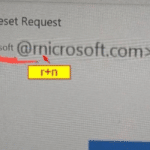If your business takes card payments, you've probably heard about PCI DSS. But what is it exactly, and why should you care? Let's break it down in simple terms and explore the payment card industry data security standards that keep your business safe.
PCI DSS stands for Payment Card Industry Data Security Standard. It's basically a set of security standards created by the big credit card companies like Visa and Mastercard. These compliance requirements help protect cardholder data from hackers and fraudsters, ensuring your customers' sensitive authentication data stays secure.
Think of it like building regulations for your house. You need to follow specific safety standards to make sure everything is secure. The PCI Security Standards Council does the same thing for businesses that handle card payments, creating data security standard requirements that protect cardholder data.
The standard has 12 main requirements that cover things like:
• Using proper firewalls to block hackers
• Not using default passwords that everyone knows
• Encrypting payment card data so thieves can't read it
• Limiting access to cardholder data to authorised personnel only
• Running regular vulnerability scans to test your security
• Conducting internal security assessments to maintain compliance.

The simple answer is that if you accept card payments, you need to become PCI compliant. This includes businesses that store cardholder data, transmit cardholder data, or process card transactions:
• Online shops
• High street retailers
• Restaurants and cafes
• Hotels and B&Bs
• Subscription services
• Charities that accept card donations
It doesn't matter if you use a third-party payment processor either. You're still responsible for maintaining PCI compliance and protecting any cardholder data in your systems.
Ignoring PCI DSS compliance requirements isn't worth the risk. Here's what could happen if you don't meet the data security standards:
Financial Pain: Credit card companies can fine you thousands of pounds every month. Your payment processing fees might also go up, eating into your profits.
Business Disruption: If hackers get into your systems and cause a data breach, you could be shut down for days or weeks while you fix everything. That's lost sales you can't get back, plus potential issues with the Data Protection Act.
Legal Trouble: Under UK data protection laws, you could face legal action if customer data gets stolen. The legal costs alone can be enormous.
Reputation Damage: Once customers lose trust in your business, it's incredibly hard to regain it. Word spreads fast, especially on social media.
Loss of Card Processing: In the worst cases, you might lose the ability to take card payments altogether. This happens when you fail to maintain compliance or suffer a serious security incident. In today's cashless world, that could kill your business.
PCI DSS has four levels based on how many card transactions you process each year:
Level 1: Over 6 million transactions. These are the major players that require annual PCI DSS audits, conducted by a PCI Qualified Security Assessor.
Level 2: 1 to 6 million transactions. Medium-sized businesses that require completing a detailed PCI DSS self-assessment questionnaire and conducting regular security scans.
Level 3: 20,000 to 1 million transactions. Smaller businesses that complete the PCI DSS requirements through questionnaires may still be required to undergo security scans.
Level 4: Under 20,000 transactions. The smallest businesses usually need to complete a basic attestation of compliance.
Most small businesses fall into Level 3 or 4, which is good news because the requirements are more manageable.
Many business owners make these dangerous assumptions:
"Hackers don't target small businesses" Actually, small businesses are often easier targets because they have weaker security. Cybercriminals know this and exploit it.
"My payment processor handles everything" Wrong. Even if you outsource card payment processing, you're still responsible for protecting any cardholder data in your systems and ensuring your cardholder data environment meets security requirements.
"Compliance is a one-time thing" PCI standards require ongoing effort. You need to maintain security standards year-round, not just pass an annual check. This includes regular compliance validation and staying current with PCI compliance requirements.
Most businesses benefit from professional compliance support because the PCI DSS requirements can be complex. Here's what good compliance help should include:
Security Assessment: A thorough check of your current setup to identify weak spots and security gaps in your cardholder data environment.
Implementation Support: Assist in implementing the proper security measures, from firewalls to staff training on protecting cardholder data.
Ongoing Monitoring: Regular vulnerability scans and monitoring to catch problems before hackers do, plus help with compliance validation.
Documentation Help: Assistance in completing those tricky self-assessment questionnaires properly and maintaining your report on compliance.
Staff Training: Making sure your team knows how to handle payment card data safely and understands the benefits of PCI compliance.
Is PCI compliance required by law in the UK?
It's not technically a law, but it's required by your contracts with banks and card companies. The Payment Card Industry (PCI) security standards are contractual obligations that you must meet. Ignore them at your peril.
How often do I need to check compliance?
At least once a year for compliance validation, with quarterly vulnerability scans for most businesses. Some organisations may need to report on compliance more frequently.
What's the quickest way to become PCI compliant?
Get professional help. Trying to understand the PCI DSS audit process yourself usually takes longer and costs more in the end.
Can I rely on my payment processor?
No. You still have responsibilities even when using third-party processors.
What happens if I have a data breach?
A data breach can result in hefty fines, legal action, loss of customer trust, and potentially loss of your ability to process card payments. The costs of remediation often far exceed the investment in proper security.
Do I need PCI compliance if I only take a few card payments?
Yes. Even businesses processing fewer than 20,000 transactions annually need to comply with PCI DSS requirements. The level of compliance may be simpler, but the obligation remains.
What's the difference between PCI compliance and PCI DSS compliance?
They're essentially the same thing. Being "PCI compliant" means you meet the PCI DSS requirements set by the Payment Card Industry Security Standards Council.
How much does PCI compliance cost?
Costs vary depending on the size and complexity of your business. However, the cost of non-compliance (fines, breach remediation, lost business) is typically much higher than maintaining proper security.
Can I lose my merchant account for non-compliance?
Yes. Banks and payment processors can terminate merchant accounts for businesses that fail to maintain PCI compliance, especially after a security incident.
What's included in cardholder data?
Cardholder data consists of the primary account number (PAN), cardholder name, expiration date, and service code. Sensitive authentication data, such as CVV codes, must never be stored after transaction authorisation.
Do I need to comply with the PCI Security Standards Council requirements if I use an e-commerce platform?
Yes. Even if your e-commerce platform is PCI compliant, you still need to ensure your business meets the requirements for any cardholder data you handle or store.
PCI DSS may seem like another headache, but it's actually a protection measure for your business. It's like insurance – you hope you'll never need it, but you'll be grateful you have it if something goes wrong.
The key is not to see compliance as a burden, but as an investment in your business's future. The benefits of PCI DSS compliance include customer trust, which in turn translates into increased sales and revenue. Customers feel more confident doing business with companies that take information security seriously.
Don't wait until you have a data breach to start thinking about PCI compliance. By then, it's too late.
As of June 2025, PCI DSS 4.0 is now the benchmark for any UK organisation handling card payments. The latest version of the standard introduces tougher, more flexible rules with a stronger emphasis on risk-based thinking, technical controls, and clear accountability about how data is stored.
While PCI isn't technically a law, it may as well be. If you want to process card payments, you're bound by contractual obligations with banks and providers to stay compliant. Slip up, and you're facing severe fines, higher fees, or worse – a data breach that could put your entire business at risk. It pays to learn more about PCI!
The new version of PCI DSS isn't just about checking boxes. It's about protecting your reputation, your customers, and your ability to keep trading.
Need help getting there? We're here to make it straightforward. Visit our PCI Compliance Solution to see how we can help you stay on the right side of compliance without overcomplicating it.


